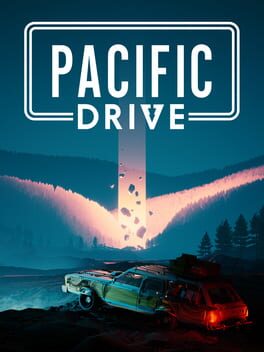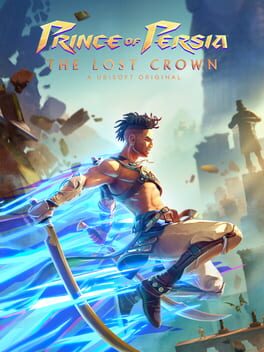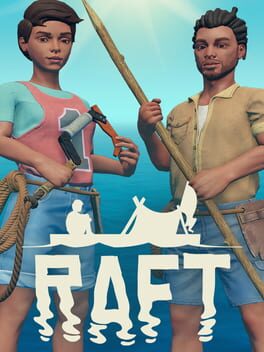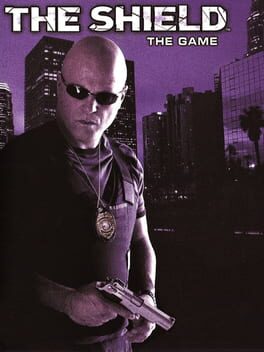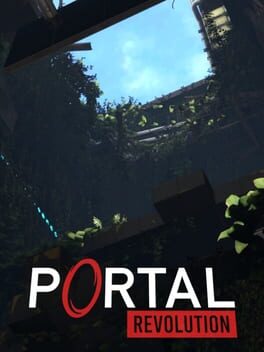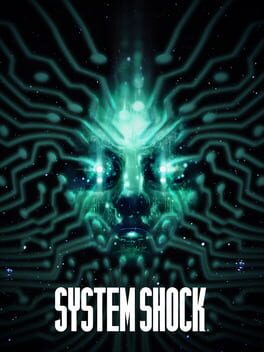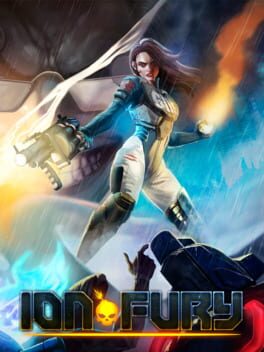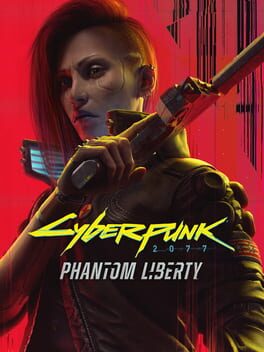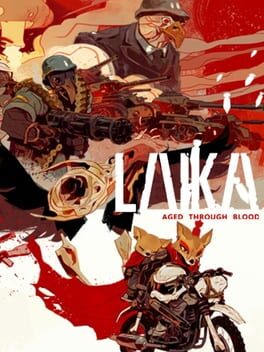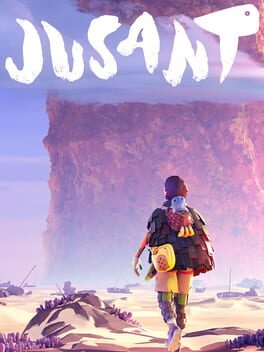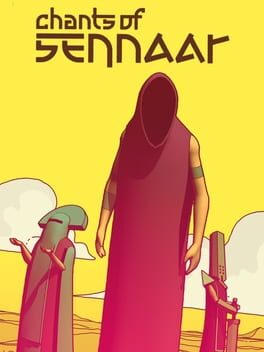Dredge
78 Reviews liked by Dredge
Pacific Drive
2024
Lies of P
2023
Yves Guillemot should resign from Ubisoft for overseeing a culture of abuse that spanned decades and seemingly still continues on at least in some Ubisoft subsidiaries.
This game is pretty cool, more large studios should take on smaller, more creative projects like this, the industry would be better for it.
But mainly Yves Guillemot should resign.
This game is pretty cool, more large studios should take on smaller, more creative projects like this, the industry would be better for it.
But mainly Yves Guillemot should resign.
Raft
2018
The Shield
2007
Hi-Fi Rush
2023
Portal: Revolution
2024
Something I don't think enough people give Portal 2 credit for is it's construction of Aperture Science as an almost mythological space. An endless labyrinth of structures built one on top of the other, stretching down into the depths of the earth, slowly decaying more and more. Futuristic chambers that endlessly deconstruct and reconstruct themselves sat next to retrofuturistic 1960s kitsch from the company's early days.
The Aperture Science of Portal was a shabby, abandoned science lab run by a mad AI. In Portal 2, it was an entire world. Huge caves full of industrial pipes and girders stretching out seemingly forever into the mist. Shifting mazes of gantries and rooms that seem designed to trap you within the facility.
Portal: Revolution gets this, and builds upon it, taking you through yet more parts of Aperture Science, learning new nuggets of information about this place that fit seemlessly into the pre-existing lore and in places fill in some questions about what happened between the two games.
This is far and away the best story mod for Portal 2 that I have played. It may be as close to another Portal game as we'll ever get (it took me around 7.5hrs to complete and packs that time with plenty of story). From the atmosphere to the humour to the puzzle design. There's little that this mod doesn't get right about the Portal universe, even if at times the jokes don't quite land or the puzzles feel a litte bit too hard for anyone who hasn't put as much time into this franchise as me. But then again, who's going to be playing this other than people like me?
But the name Portal: Revolution suggests something grander than the ambitions of this mod. A revolution this is not. For all of this team's fantastic work replicating what Valve has done in the past, they fail to replicate what Valve always does in the future: Revolutionise their games.
There has never been a Valve sequel that wasn't swinging for the fences. It's probably the reason why they make games so infrequently. If you can't truly reinvent a franchise, why bother?
But Portal: Revolution does not reinvent Portal, it simply iterates on the ideas that Valve laid down in Portal 2, pushing some mechanics further and introducing some new ones that fit seemlessly into the puzzle-solving ecosystem of the portal games. There are some really smart spins on the puzzle design of Portal 2 here and I don't want to diminish the fantastic work this team has done by suggesting that they should have done more. What they achieved here is truly work they should be proud of. But why they called this mod Portal: Revolution remains a mystery to me. For my money, they should have dropped the "R" (the one at the start of "Revolution" not the one in the middle of "Portal".)
Perhaps my biggest gripe with this mod is how slow it is to start. The first few hours of the game are spent on puzzle chambers where the player only controls one portal. This makes for some interesting puzzles but wears out its welcome some time before the second portal is finally introduced. Perhaps worse than this is that the few new mechanics that this mod has to offer are not introduced until hours into the experience and others not until the third act. As a result, many feel like they don't quite reach their full potential even if the puzzle design is generally great.
The narrative as well doesn't fully pick up steam until the end of the first act, but once it does it is a pretty engaging story that fleshes out the mythos of Aperture Science in interesting ways and introduces you to some fun new characters. While it is a tad predictable, there are some twists and turns which feel in keeping with the franchises themes and sense of humour. Meanwhile, the voice cast - while not reaching the heights of Stephen Merchant, Ellen McLain and J.K. Simmons (an unbelievably high bar) - hold their own well and deliver lines with some not bad comedic timing.
Portal: Revolution is the kind of modding success story that only comes around every once in a blue moon. The convergence of talent and genuine passion that really only a mod can give you. A game that deserves to stand alongside the game it was built upon, if not on equal footing then at least in the same limelight. If you're a fan of Portal, you owe it to yourself and the Aperture Science Enrichment Center to play this Interactive Experience.
The Aperture Science of Portal was a shabby, abandoned science lab run by a mad AI. In Portal 2, it was an entire world. Huge caves full of industrial pipes and girders stretching out seemingly forever into the mist. Shifting mazes of gantries and rooms that seem designed to trap you within the facility.
Portal: Revolution gets this, and builds upon it, taking you through yet more parts of Aperture Science, learning new nuggets of information about this place that fit seemlessly into the pre-existing lore and in places fill in some questions about what happened between the two games.
This is far and away the best story mod for Portal 2 that I have played. It may be as close to another Portal game as we'll ever get (it took me around 7.5hrs to complete and packs that time with plenty of story). From the atmosphere to the humour to the puzzle design. There's little that this mod doesn't get right about the Portal universe, even if at times the jokes don't quite land or the puzzles feel a litte bit too hard for anyone who hasn't put as much time into this franchise as me. But then again, who's going to be playing this other than people like me?
But the name Portal: Revolution suggests something grander than the ambitions of this mod. A revolution this is not. For all of this team's fantastic work replicating what Valve has done in the past, they fail to replicate what Valve always does in the future: Revolutionise their games.
There has never been a Valve sequel that wasn't swinging for the fences. It's probably the reason why they make games so infrequently. If you can't truly reinvent a franchise, why bother?
But Portal: Revolution does not reinvent Portal, it simply iterates on the ideas that Valve laid down in Portal 2, pushing some mechanics further and introducing some new ones that fit seemlessly into the puzzle-solving ecosystem of the portal games. There are some really smart spins on the puzzle design of Portal 2 here and I don't want to diminish the fantastic work this team has done by suggesting that they should have done more. What they achieved here is truly work they should be proud of. But why they called this mod Portal: Revolution remains a mystery to me. For my money, they should have dropped the "R" (the one at the start of "Revolution" not the one in the middle of "Portal".)
Perhaps my biggest gripe with this mod is how slow it is to start. The first few hours of the game are spent on puzzle chambers where the player only controls one portal. This makes for some interesting puzzles but wears out its welcome some time before the second portal is finally introduced. Perhaps worse than this is that the few new mechanics that this mod has to offer are not introduced until hours into the experience and others not until the third act. As a result, many feel like they don't quite reach their full potential even if the puzzle design is generally great.
The narrative as well doesn't fully pick up steam until the end of the first act, but once it does it is a pretty engaging story that fleshes out the mythos of Aperture Science in interesting ways and introduces you to some fun new characters. While it is a tad predictable, there are some twists and turns which feel in keeping with the franchises themes and sense of humour. Meanwhile, the voice cast - while not reaching the heights of Stephen Merchant, Ellen McLain and J.K. Simmons (an unbelievably high bar) - hold their own well and deliver lines with some not bad comedic timing.
Portal: Revolution is the kind of modding success story that only comes around every once in a blue moon. The convergence of talent and genuine passion that really only a mod can give you. A game that deserves to stand alongside the game it was built upon, if not on equal footing then at least in the same limelight. If you're a fan of Portal, you owe it to yourself and the Aperture Science Enrichment Center to play this Interactive Experience.
System Shock
2023
Ion Fury
2019
"WARNING: This game contains depictions of extreme acts of violence towards children and suicide, mentions of sexual assault, which some players may find distressing."
Laika: Aged Through Blood begins with this content warning, but it's less of a warning and more of a promise, one that it makes good on within five minutes as you bear witness to a child that has been gutted and hung by those guts as a warning that your enemies are coming for you.
It sets the tone for a game so edgy you could cut yourself just looking at it. A game so wholeheartedly grimdark that the main character's literal catchphrase is "fuck me if I care", where after reliving a brutal memory that defines her existence, she opines that it "hurts just as much now as it did on that fucking goddamn day". Suffice it to say that the dialogue (which, it should be said, was not written by native english speakers) is very bad.
More than that though, the grimdark tone is committed to so completely that Laika ends up feeling nihilistic almost to a fault. Not only is the titular character almost completely done with existence but I wouldn't hold your breath for positive outcomes to the games' many sidequests. Meanwhile, one of the only things that passes for comic relief is a character who quite literally says the word "wanker" in almost every single one of their lines of dialogue.
Having said all of that, there are uplifting moments to be found in Laika as well as moments where the story and dialogue do shine and by the end I did find myself emotionally invested in Laika and her ragtag village of survivors, but ultimately the story and tone of this game manage to be a letdown in what is overall a very compelling game.
The reason I chose to frontload this review with negative points before moving onto the more positive aspects of the game is because I believe the tone and story of this game are likely to be its most controversial aspects and given how pervasive they are throughout the entire game it's worth talking about them before anything else.
So, if none of those things put you off, let me tell you about some of the coolest gameplay I've experienced this year. Laika takes a moment to get used to. Juggling it's traversal and combat initially seems kind of clunky and awkward but once it clicks oh boy does it click.
Laika's gameplay is a simple loop of speeding around on your motorbike and shooting anything that gets in your way, but it's a loop that never really wears out its welcome thanks to tight controls and generous bullet time that, once mastered, leave you feeling like a god of gunpowder and steel as you pirouette through levels like a deadly tornado.
There are a few strokes of design genius at play here. Firstly, in order to reload your guns, you need to perform a backflip, forcing you into many situations where you risk exposing yourself to your enemies (your bike acts as a shield when angled correctly) in order to regain your precious bullets and carry on shooting. Secondly, enemies fly through the air as you shoot them, often acting as meat shields for their companions in their final moments, forcing you to wait for the perfect time to shoot. Enemy variety is not massive, but each enemy forces you to think and act differently and some can be more effectively countered by certain weapons.
Laika is structed as a sort of pseudo-metroidvania. Throughout the game you gain upgrades which allow you access to new areas. The first of these is a shotgun, which is an absolute textbook example of great metroidvania ability design. It serves not only as a weapon but allows you to blast through barricades which previously blocked progress as well as knocking you back when you fire it, a feature which can be used as a sort of double jump when aimed correctly.
The other abilities are, in comparison, underwhelming. Imagine my sadness when I gained a grappling hook only to discover it cannot be used on enemies and can only be used on very specific objects which block progress.
The world is split into different zones, each of which are relatively distinct from each other thanks to strong art design and some pretty fantastic background work. While most of these zones play the same, a few provide interesting environmental challanges.
The main story has some particularly great setpieces which feel both mechanically fresh and suitably epic. The sidequests are, however, a bit of a letdown, most of them are very simplistic fetch quests with very little narrative attached to them. The worst of these quests are invariably the ones that attempt to tackle heavy topics while featuring about ten lines of dialogue in total.
Almost all of these quests task you with finding an object in the world (sometimes with very vague descriptions of where you need to go) which only becomes interactable once the quest starts. As soon as I cottoned on to this I found myself frequently spotting what I knew were quest items but finding myself unable to interact with them. Knowing I would have to backtrack to this location once I had the relevant quest. Eventually, I gave up on some of these quests as the rewards were rarely worth the effort anyway.
Perhaps the most standout element of Laika aside from the gameplay is its original soundtrack, an album's worth of bangers by Brainwash Gang's inhouse composer Beícoli (who is also a character in the game). While many of this game's story beats will probably fade from my memory with time, I can easily imagine finding one of these songs randomly stuck in my head years from now, probably Playing in the Sun. It's a soundtrack worth listening to even if the game doesn't really appeal to you.
Ultimately Laika: Aged Through Blood is a a game I could easily see becoming a cult classic in certain circles. A tight core gamplay loop, a fantastic soundtrack and some great art let down only by a needlessly dark tone and some supremely bad dialogue. If you can look past those faults though, I promise you, you'll find a game quite unlike anything else you've played.
Laika: Aged Through Blood begins with this content warning, but it's less of a warning and more of a promise, one that it makes good on within five minutes as you bear witness to a child that has been gutted and hung by those guts as a warning that your enemies are coming for you.
It sets the tone for a game so edgy you could cut yourself just looking at it. A game so wholeheartedly grimdark that the main character's literal catchphrase is "fuck me if I care", where after reliving a brutal memory that defines her existence, she opines that it "hurts just as much now as it did on that fucking goddamn day". Suffice it to say that the dialogue (which, it should be said, was not written by native english speakers) is very bad.
More than that though, the grimdark tone is committed to so completely that Laika ends up feeling nihilistic almost to a fault. Not only is the titular character almost completely done with existence but I wouldn't hold your breath for positive outcomes to the games' many sidequests. Meanwhile, one of the only things that passes for comic relief is a character who quite literally says the word "wanker" in almost every single one of their lines of dialogue.
Having said all of that, there are uplifting moments to be found in Laika as well as moments where the story and dialogue do shine and by the end I did find myself emotionally invested in Laika and her ragtag village of survivors, but ultimately the story and tone of this game manage to be a letdown in what is overall a very compelling game.
The reason I chose to frontload this review with negative points before moving onto the more positive aspects of the game is because I believe the tone and story of this game are likely to be its most controversial aspects and given how pervasive they are throughout the entire game it's worth talking about them before anything else.
So, if none of those things put you off, let me tell you about some of the coolest gameplay I've experienced this year. Laika takes a moment to get used to. Juggling it's traversal and combat initially seems kind of clunky and awkward but once it clicks oh boy does it click.
Laika's gameplay is a simple loop of speeding around on your motorbike and shooting anything that gets in your way, but it's a loop that never really wears out its welcome thanks to tight controls and generous bullet time that, once mastered, leave you feeling like a god of gunpowder and steel as you pirouette through levels like a deadly tornado.
There are a few strokes of design genius at play here. Firstly, in order to reload your guns, you need to perform a backflip, forcing you into many situations where you risk exposing yourself to your enemies (your bike acts as a shield when angled correctly) in order to regain your precious bullets and carry on shooting. Secondly, enemies fly through the air as you shoot them, often acting as meat shields for their companions in their final moments, forcing you to wait for the perfect time to shoot. Enemy variety is not massive, but each enemy forces you to think and act differently and some can be more effectively countered by certain weapons.
Laika is structed as a sort of pseudo-metroidvania. Throughout the game you gain upgrades which allow you access to new areas. The first of these is a shotgun, which is an absolute textbook example of great metroidvania ability design. It serves not only as a weapon but allows you to blast through barricades which previously blocked progress as well as knocking you back when you fire it, a feature which can be used as a sort of double jump when aimed correctly.
The other abilities are, in comparison, underwhelming. Imagine my sadness when I gained a grappling hook only to discover it cannot be used on enemies and can only be used on very specific objects which block progress.
The world is split into different zones, each of which are relatively distinct from each other thanks to strong art design and some pretty fantastic background work. While most of these zones play the same, a few provide interesting environmental challanges.
The main story has some particularly great setpieces which feel both mechanically fresh and suitably epic. The sidequests are, however, a bit of a letdown, most of them are very simplistic fetch quests with very little narrative attached to them. The worst of these quests are invariably the ones that attempt to tackle heavy topics while featuring about ten lines of dialogue in total.
Almost all of these quests task you with finding an object in the world (sometimes with very vague descriptions of where you need to go) which only becomes interactable once the quest starts. As soon as I cottoned on to this I found myself frequently spotting what I knew were quest items but finding myself unable to interact with them. Knowing I would have to backtrack to this location once I had the relevant quest. Eventually, I gave up on some of these quests as the rewards were rarely worth the effort anyway.
Perhaps the most standout element of Laika aside from the gameplay is its original soundtrack, an album's worth of bangers by Brainwash Gang's inhouse composer Beícoli (who is also a character in the game). While many of this game's story beats will probably fade from my memory with time, I can easily imagine finding one of these songs randomly stuck in my head years from now, probably Playing in the Sun. It's a soundtrack worth listening to even if the game doesn't really appeal to you.
Ultimately Laika: Aged Through Blood is a a game I could easily see becoming a cult classic in certain circles. A tight core gamplay loop, a fantastic soundtrack and some great art let down only by a needlessly dark tone and some supremely bad dialogue. If you can look past those faults though, I promise you, you'll find a game quite unlike anything else you've played.
